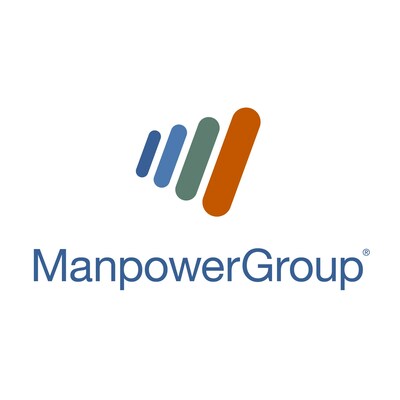Global Talent Barometer: Workers More Confident Than Ever, But Job Satisfaction Lags as Companies Struggle to Match Employee Ambitions
Rhea-AI Summary
ManpowerGroup (NYSE:MAN) released its Global Talent Barometer 2025, revealing a significant disconnect between worker confidence and job satisfaction. The study, surveying 13,700 workers across 19 countries, shows worker confidence reaching 76% while job satisfaction dropped to 62%.
Key findings include 89% of workers feeling confident in their skills, yet only 65% feel secure in their jobs. The report highlights concerning trends: 49% report daily stress, with middle managers experiencing the highest levels at 82%. The study also reveals that turnover costs average $18,591 per employee, with only 55% of workers both satisfied and likely to stay.
The research also found that while 81% of tech leaders are still in testing phases of AI adoption, only 10% have fully integrated AI across operations, contributing to worker dissatisfaction.
Positive
- Worker confidence in skills reached 89%, showing a highly capable workforce
- 82% of workers find their work meaningful, up 2% from 2024
- Overall worker confidence increased to 76%, up 2 points
- Trust in leadership increased by 4% compared to 2024
- Workers with career development opportunities show 77% confidence, up 4 percentage points
Negative
- Job satisfaction dropped to 62%, down 1 point from previous year
- Job security declined to 65%, a significant 6 percentage point drop
- 49% of workers report moderate to high daily stress
- Millennial satisfaction decreased dramatically by 11% year-over-year
- Only 55% of workers are both satisfied and unlikely to leave voluntarily
- High turnover costs averaging $18,591 per employee
News Market Reaction
On the day this news was published, MAN gained 2.89%, reflecting a moderate positive market reaction.
Data tracked by StockTitan Argus on the day of publication.
Workers believe in themselves, but not their employers: Confidence hits
This widening gap reflects workers who are rapidly developing new skills, including in emerging areas like artificial intelligence (AI), while many employers are struggling to keep pace. New research from ManpowerGroup on AI in the workplace shows
"The advance of AI means every company is transforming to survive and thrive. But digital transformation is as much about people as it is about technology," says Becky Frankiewicz, president and chief strategy officer at ManpowerGroup. "The future of work isn't about control, it's about partnership. When companies invest in people, people invest back. And right now, people want more; more balance, more flexibility, more humanity, and importantly – more development."
Workforce Snapshot: Confidence Up, But So Is Stress
Now at
82% say their work is meaningful (up2% from 2024)- Overall confidence rose to
76% (up 2 points) - Job satisfaction dropped to
62% (down 1 point), highlighting the growing divide between workers' skills and their workplace experience - Only
65% feel secure in their jobs over the next six months (down 6 percentage points from71% ) 49% report moderate to high daily stress, with middle managers reporting the highest levels (82% ) followed by Gen Z (56% )
Three Critical Challenges Employers Can't Ignore
1. The Stress-Retention Connection
Despite
This disconnect helps explain why confident workers are leaving. Meaningful work can't offset burnout — especially when growth is limited, and support is lacking.
2. Stuck in the Middle
Middle managers face pressure from all sides. While
Millennials saw the steepest drop in satisfaction (down
3. Development as Trust Currency
The data shows a clear correlation between development investment and retention. Workers who report having career development opportunities show
Still, the quality of development matters. While roughly one-third of employers recognize that AI can't replace human-centric skills like ethical judgment (
The Bottom Line: Invest in People or Pay the Price
With turnover now costing an average of
To explore the complete findings of the Global Talent Barometer 2025, Volume 1, including regional and country-specific insights and industry-level breakdowns, visit manpowergroup.com/en/insights/talent-barometer
ABOUT THE GLOBAL TALENT BAROMETER
The ManpowerGroup Global Talent Barometer measures worker well-being, job satisfaction, and confidence around the world. This comprehensive tool leverages independent survey best-practices and statistically significant samples to create a powerful tool to better understand what workers want globally. The research aims to improve the future of work through deeper understanding the key drivers of workforce sentiment today.
METHODOLOGY
Survey responses were collected from 13,771 workers across 19 countries from March 14 to April 11, 2025. All the data is weighted to match the worker population in each country by gender, age and region, and all countries are weighted to be equal.
COUNTRIES SURVEYED
ABOUT MANPOWERGROUP
ManpowerGroup® (NYSE: MAN), the leading global workforce solutions company, helps organizations transform in a fast-changing world of work by sourcing, assessing, developing, and managing the talent that enables them to win. We develop innovative solutions for hundreds of thousands of organizations every year, providing them with skilled talent while finding meaningful, sustainable employment for millions of people across a wide range of industries and skills. Our expert family of brands – Manpower, Experis, and Talent Solutions – creates substantially more value for candidates and clients across more than 70 countries and territories and has done so for more than 75 years. We are recognized consistently for our diversity – as a best place to work for Women, Inclusion, Equality, and Disability, and in 2025 ManpowerGroup was named one of the World's Most Ethical Companies for the 16th time – all confirming our position as the brand of choice for in-demand talent.
For more information, visit www.manpowergroup.com, or follow us on LinkedIn, Facebook, and Bluesky.
FORWARD-LOOKING STATEMENTS
This report contains forward-looking statements, including statements regarding labor demand in certain regions, countries and industries, economic uncertainty, and the use and impact of AI. Actual events or results may differ materially from those contained in the forward-looking statements, due to risk, uncertainties and assumptions. These factors include those found in the Company's reports filed with the
![]() View original content to download multimedia:https://www.prnewswire.com/news-releases/global-talent-barometer-workers-more-confident-than-ever-but-job-satisfaction-lags-as-companies-struggle-to-match-employee-ambitions-302489352.html
View original content to download multimedia:https://www.prnewswire.com/news-releases/global-talent-barometer-workers-more-confident-than-ever-but-job-satisfaction-lags-as-companies-struggle-to-match-employee-ambitions-302489352.html
SOURCE ManpowerGroup








